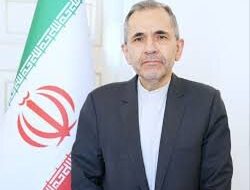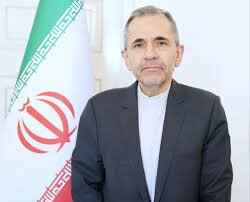Tehran to consider leaving NPT if snapback activated, Deputy FM warns
TEHRAN – Iran’s Deputy Foreign Minister for Political Affairs Majid Takht Ravanchi told the Parliament’s National Security Committee that Iran will look into withdrawing from the Nuclear Non-Proliferation Treaty (NPT) if the UN Security Council attempts to reinstate the so-called “Snapback” sanctions. While describing last week’s talks with the European Troika (E3) as constructive, Takht


TEHRAN – Iran’s Deputy Foreign Minister for Political Affairs Majid Takht Ravanchi told the Parliament’s National Security Committee that Iran will look into withdrawing from the Nuclear Non-Proliferation Treaty (NPT) if the UN Security Council attempts to reinstate the so-called “Snapback” sanctions.
While describing last week’s talks with the European Troika (E3) as constructive, Takht Ravanchi emphasized that any agreement undermining the JCPOA or leading to the re-imposition of previous UN Security Council sanctions might force Iran to reassess its commitment to the NPT and adjust its nuclear policy.
This strong stance came before IAEA Director General Rafael Grossi’s Friday statement to Reuters, highlighting Iran’s rapidly increasing capacity to enrich uranium to 60% purity.
The deputy minister stressed that any further discussions with the E3 will be guided by Leader of the Islamic Revolution Ayatollah Seyyed Ali Khamenei and conducted with a clear-eyed understanding of the realities of the situation.
The NPT, a 1970 international treaty, aims to prevent nuclear proliferation and promote peaceful nuclear energy use. The “Snapback” mechanism, a feature of the 2015 JCPOA (between Iran and the P5+1: US, UK, France, Russia, China, and Germany), allows for the immediate re-imposition of pre-JCPOA sanctions if Iran is deemed non-compliance
Since the U.S. withdrawal from the JCPOA in 2018, the E3 retains the authority to trigger this mechanism, a threat Iran views as illegitimate and a pretext for renewed Western pressure.
